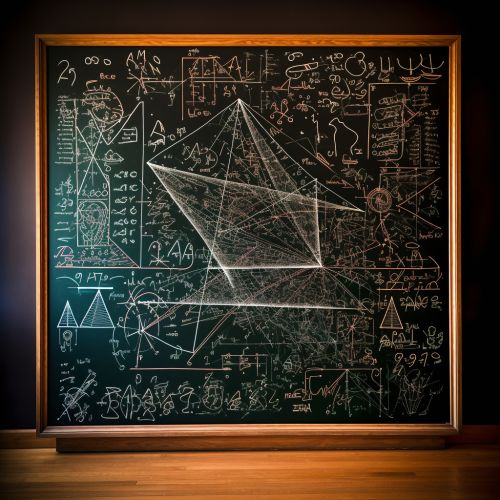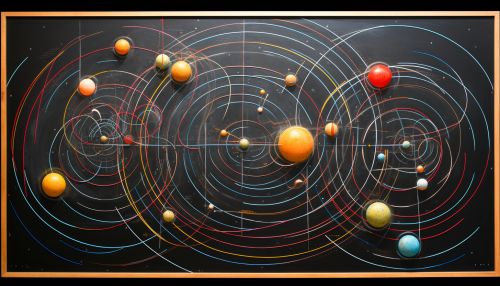Superposition (quantum mechanics)
Introduction
Superposition in quantum mechanics is a fundamental principle that holds that any two (or more) quantum states can be added together ("superposed") and the result will be another valid quantum state; and conversely, that every quantum state can be represented as a sum of two or more other distinct states. This principle is at the heart of quantum mechanics and differentiates it from classical mechanics.


Concept and Definition
The term "superposition" comes from the mathematical concept of superposition functions. In quantum mechanics, it refers to the quantum state of a system with multiple potential outcomes. The principle of superposition asserts that if a physical system may be in one of many configurations—arrangements of particles or fields—then the most general state is a combination of all of these possibilities, where the amount in each configuration is specified by a complex number.
For example, if there are two configurations labelled by 0 and 1, the most general state would be c0|0⟩ + c1|1⟩, where the ci are complex numbers. In this sense, the system is in a "superposition" of states. This concept is a direct result of the wave-particle duality of quantum particles.
Mathematical Formulation
The principle of superposition can be mathematically formulated using the language of Hilbert spaces and linear algebra. A quantum state, in the abstract formalism of quantum mechanics, is a ray in a Hilbert space over the complex numbers. The principle of superposition states that any linear combination of states is also a state.


This is a direct consequence of the fact that the Hilbert space of quantum mechanics is a linear space, meaning that it is closed under addition and scalar multiplication. The coefficients in the linear combination are complex numbers, which allows for interference effects when the superposition is collapsed, as in the double-slit experiment.
Superposition and Measurement
One of the most intriguing aspects of superposition in quantum mechanics is its relationship with measurement. According to the Copenhagen interpretation of quantum mechanics, measurement causes a superposed state to collapse to one of the states in the superposition. This is known as the "collapse of the wavefunction".
The outcome of the measurement is probabilistic, with the probability of obtaining each possible result given by the square of the absolute value of the coefficient of the corresponding state in the superposition. This is known as the Born rule.


Quantum Superposition in Quantum Computing
Quantum superposition is a key principle in quantum computing. In classical computing, a bit is a fundamental unit of information that can exist in two states, 0 or 1. In quantum computing, however, we use quantum bits or "qubits", which can exist in a superposition of states.
This means that a qubit can represent a 0, a 1, or any quantum superposition of those two qubit states. This property is what allows quantum computers to work on a large number of computations simultaneously, giving them potential for great computational power.


Interpretations and Philosophical Implications
The principle of superposition and its implications for the nature of reality have been the subject of much philosophical debate. Different interpretations of quantum mechanics, such as the Copenhagen interpretation, the many-worlds interpretation, and the de Broglie-Bohm theory, offer different views on what the principle of superposition means for the nature of reality.


